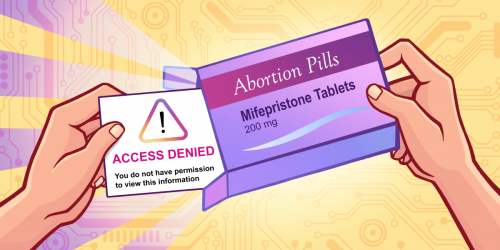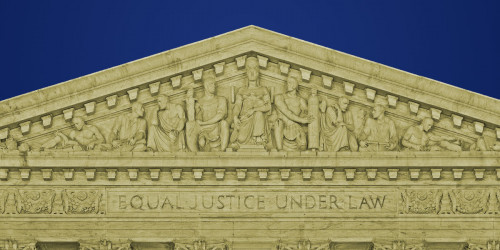San Francisco – The Electronic Frontier Foundation (EFF) has joined forces with Protect Democracy and Cooley LLP to represent five advocacy organizations suing President Trump and others in his administration for an unconstitutional executive order threatening their ability to receive accurate information free from government censorship. The plaintiffs are Common Cause, Free Press, Maplight, Rock the Vote, and Voto Latino.
“Our clients want to make sure that voting information found online is accurate, and they want social media companies to take proactive steps against misinformation,” said David Greene, EFF's Civil Liberties Director. “Social media platforms have the right to curate content however they like—whether it is about voting or not—but President Trump’s executive order punishes platforms for doing just that. Misusing an Executive Order to force companies to censor themselves or others is wrong and dangerous in the hands of any president. Here it’s a transparent attempt to retaliate against Twitter for fact-checking the president’s posts, as well as an obvious threat to any other company that might want to do the same.”
Trump signed the “Executive Order on Preventing Online Censorship” in May, after a well-publicized fight with Twitter. First, the president tweeted false claims about the reliability of online voting, and then Twitter decided to append a link to “get the facts about mail-in ballots.” Days later, Trump signed the order, which tasks government agencies with concocting a process for deciding whether any platform’s decision to moderate user-generated content was done with “good faith.” If found to be in bad faith, the order then asks for social media companies to lose millions of dollars in government advertising, as well as their legal protections under Section 230. Section 230 is the law that allows online services—like Twitter, Facebook, and others—to host and moderate diverse forums of users’ speech without being liable for their users’ content.
In the lawsuit filed in the United States District Court for the Northern District of California today, the plaintiffs argue that the executive order is designed to chill social media companies from moderating the president’s content in a way that he doesn’t like—particularly correcting his false statements about elections. In fact, since the order, Trump has tweeted multiple falsehoods about voting without any flagging by Twitter.
“Voters have a constitutional right to receive accurate information about voting alternatives without government interference, especially from a self-interested president who is lying to gain an advantage in the upcoming election. So when Trump retaliates against private social media companies for fact-checking his lies, it’s not only a First Amendment violation—it’s the kind of behavior you’d expect to see from a dictator,” said Kristy Parker, counsel with Protect Democracy. “In the midst of a global pandemic, when far more voters than usual may opt to vote by mail to protect their personal health, the president’s authoritarian actions are especially egregious.”
“We joined this cause to protect voters’ access to accurate information about voting during the pandemic, free from unconstitutional governmental meddling that is being done to advance a particular political viewpoint,” said Michael Rhodes, who chairs Cooley’s global cyber/data/privacy and Internet practices. “We want all voters to be able to make informed and independent political choices and that requires protecting online platforms’ ability to curate information without fear of reprisal from the federal government.”
For the full complaint in Rock the Vote et al. v. Trump:
https://www.eff.org/document/rock-vote-v-trump









